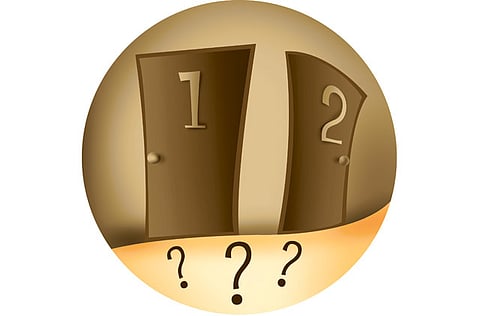Can Syria move to democracy peacefully?
Helena Cobban writes: Persuading members of the ruling minority to loosen their grip and move to a one-person, one-vote system is a challenge

Syria's pro-democracy movement has brought huge crowds onto the streets, challenging the 48-year rule of the country's Baath Party. Already, hundreds have been killed in clashes between protesters and the security forces. Can Syria make a transition to democracy without facing the deadly battles now seen in Libya?
Yes, if enough leaders within Syria show vision and restraint, and if they are open to some outside mediation.
The alternative would likely be a spiral into sectarianism, further violence, and socio-political breakdown (in Arabic, fitna). This is terrible to contemplate — for Syria's own 22 million people and for all their neighbours. Syrians know well how Iraq had its own fitna after the 2003 ouster of Saddam Hussain. They hosted more than a million of the refugees from that violence.
So how might outsiders help Syria make real, speedy progress toward democracy without running the risk of fitna?
First, we should understand that, in today's Syria as in pre-2003 Iraq, the country's one-party rule has a deeper reality: near-complete domination by a single, minority demographic.
In Baathist Iraq, that minority was the country's Sunni Arabs. In Syria, it is the Alawites who make up an even smaller proportion of the population — less than 13 per cent — while a clear majority of Syrians are Sunnis. (The citizenry also includes many Arab Christians and ethnic Kurds, along with members of other minority groups.)
One big challenge, as in post-Saddam Iraq or pre-democracy South Africa, is how to persuade the (often fearful) members of the power-holding minority to loosen their grip and move speedily to a one-person, one-vote system.
An equally difficult challenge is how to persuade the (often angry and vengeful) members of the majority to be inclusive and even generous as they proceed toward winning their democratic goal.
South Africa's model
Finding visionaries on both sides to do that will not be easy. Syrians need both a Nelson Mandela and a F.W. de Klerk who, as in apartheid South Africa, could negotiate a path to democracy for Syria.
Of course, it isn't that simple. During South Africa's largely peaceful transition to democracy, each of those two leaders had a broad and fully functioning political movement behind him. The democratisation deal that they negotiated was a wide-ranging agreement between two big movements, not just between two men.
In Syria, it is hard to imagine the minority Baath Party backing an overture to leaders in the majority Sunni community. It may be harder yet to identify leaders in the pro-democracy movement able to persuade the country's majority population to get behind a deal that includes minority Alawites and Baathists going forward. But back in South Africa in the 1980s, it was equally hard to see how ‘whites' and ‘blacks' there could ever strike a deal!
South Africa's transition to full democracy — without the much-feared bloodbath — provides a great example for how such change can be peacefully accomplished. The South African experience also suggests an outside party who could help broker the negotiations now needed in Syria: South Africa itself. Another country that could help is Turkey. Turkey shares an 800-mile border with Syria. It is a democratic, majority-Sunni nation, ruled by a moderate Islamist party. It is an emerging economic power-house. Its leaders have good relations with both the government and the public in Syria.
Turkey is also a longstanding Nato member that got its once coup-prone military to stop interfering in civilian politics.
All these attributes position Turkey to suggest helpful solutions for Syria's deeply tangled politics. And what role might the US play? First, Washington should give full support to any plan for a negotiated, rather than violent, path towards democracy in Syria. Second, it should keep neighbouring Israel from interfering with this process.
Syrians at all points on their political spectrum will probably continue their campaign for a return of the Golan Heights territory, which Israel has occupied since 1967. Washington should support a land-for-peace deal between the two countries. In any country, building a functioning democracy takes more than just one or two elections. It needs sturdy institutions and a commitment to a shared future. Above all, it's about building respect for the idea that even the deepest political differences should be resolved through deliberation and negotiation, not violence.
In South Africa, after centuries of strife and repression, the vast majority of citizens — even those in the long-pampered ‘white' community — came to favour the path of inclusive democracy. Their country, their whole region, and the world are better for that decision.
Can South Africa, Turkey, the US, and other friends of Syria now help the Syrian people — of all persuasions — to follow that lead?
Helena Cobban was a correspondent and columnist for the Monitor. She has published several books about the Syrian-Israeli negotiations and South Africa's democratisation.



